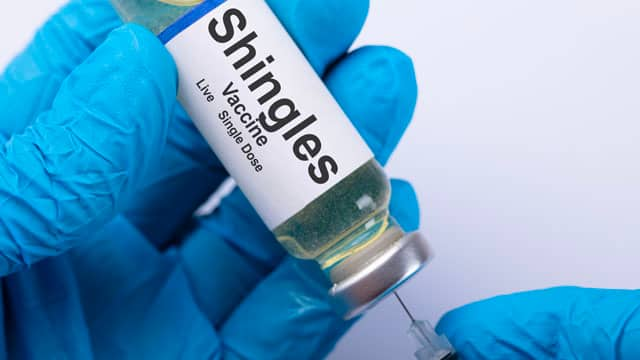What Is Herpetic Stomatitis?
A human herpes simplex DNA virus associated with the oral cavity, HSV-1 is a different strain of the virus than the herpes simplex virus 2 (HSV-2) associated with the genital region.
And unlike HSV-2, herpes stomatitis frequently shows up in children between the ages of 6 months to 5 years.
Unfortunately, like genital herpes, HSV-1 stays in your system throughout your life once you've contracted it. And because people get it while a child or from contact with those who have it, 50-80 percent of adults live with herpetic stomatitis – even in its dormant stage – notes Johns Hopkins Medicine.
What Are Herpetic Stomatitis Symptoms?
A child's HSV-1 symptoms might include fever, drooling, irritability, difficulty swallowing, and blisters in all areas of the mouth and gums. If they pop, the blisters might develop into mouth ulcers.
Your child also might be in pain and refuse food and drink.
Adults undergoing their first outbreak might experience similar symptoms.
As always, it's best to contact your doctor after any symptoms appear. Your doctor should be able to identify herpes stomatitis by a visual exam. To confirm the diagnosis, a laboratory test might be in order.
How Is Herpetic Stomatitis Treated and Managed?
Over-the-counter pain and fever medications might be all you need to treat HSV-1. However, depending on the situation, your doctor might prescribe a virus-fighting medication (pills and ointments) and numbing medicine to ease a child's pain.
As a parent, besides administering the necessary medication, you can take these measures:
- Guard against dehydration by giving your child plenty of fluids, such as water or diluted apple juice.
- Feed your child food that's cool and easy-to-swallow (Ice cream might be a popular option.)
- Apply ice or a warm compress to help ease the pain.
- As gently as you can, brush your child's teeth regularly.
- Ensure your child gets enough sleep.
Even if your child resists all your measures, it's essential you persist so your child will get better in a week or two.
After the first outbreak, further outbreaks are usually infrequent and less severe as antibodies have built up. According to Johns Hopkins Medicine, these factors might trigger a recurrence of oral herpes: fever, surgery, menstruation, too much sun, emotional stress, or physical injuries.
As mentioned, HSV-1 is a condition for life as the body can't eliminate the oral herpes virus. To minimize flareups of the virus, do what you usually do to avoid all health conditions: Maintain a healthy lifestyle, and reduce emotional and physical stresses.
How Does Herpetic Stomatitis Spread?
As we all learned in 2020, people who contract a virus don't always exhibit symptoms but can still be highly contagious. It's the same with HSV-1.
For instance, parents might be unaware their child has HSV-1 and expose themselves to the virus by kissing their little one.
But one thing's for sure: If someone you know is experiencing an HSV-1 outbreak, don't engage in any direct physical contact with that person, for teens and adults, that includes kissing and oral sex.
For kids, ensure they don't share toys, lick or kiss others, or share eating and drinking utensils. (Good advice for adults, too.)
If most of us live with herpetic stomatitis, let's not stigmatize those experiencing an occurrence. Just be aware to avoid your own outbreaks.
Oral Care Center articles are reviewed by an oral health medical professional. This information is for educational purposes only. This content is not intended to be a substitute for professional medical advice, diagnosis or treatment. Always seek the advice of your dentist, physician or other qualified healthcare provider.
ORAL HEALTH QUIZ
What's behind your smile?
Take our Oral Health assessment to get the most from your oral care routine
ORAL HEALTH QUIZ
What's behind your smile?
Take our Oral Health assessment to get the most from your oral care routine














